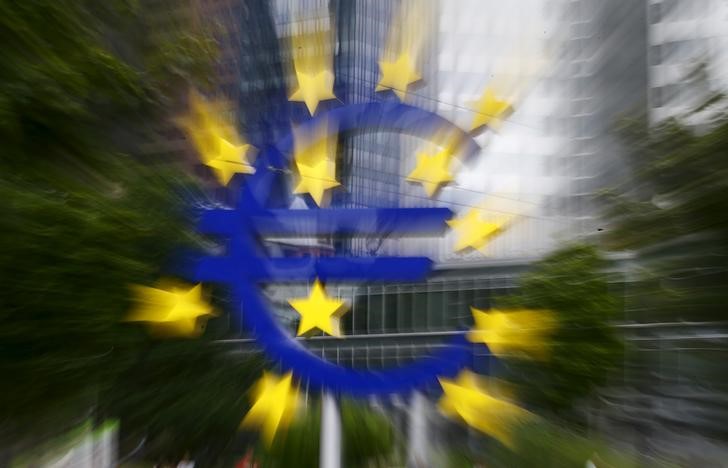BRUSSELS (Reuters) - Euro zone inflation was revised up to 0.2 percent in November, rising slightly more than expected mostly because of a slowdown in the decline of energy prices, the EU statistics agency said on Wednesday.
Eurostat previously estimated inflation at 0.1 percent last month in the 19 countries sharing the euro. The monthly consumer price change was -0.1 percent, slightly higher than the expected -0.2 percent.
The revision came because the inflation rate for unprocessed food and for services both ticked up by 0.1 percentage point.
The main factor behind the modest increase in inflation as a whole was the lessening influence of weak energy prices. They were down 7.3 percent year-on-year in November after falling 8.5 percent in October. Month-on-month they were unchanged.
Core inflation - which excludes the most volatile components of unprocessed food and energy - was lower than in October, at 0.9 percent year-on-year, in line with the flash estimate, and was minus 0.2 percent on a monthly basis.
Despite the small rise in inflation, euro area prices remain subdued, keeping pressure high on the European Central Bank that has unveiled new policy measures to fight low inflation on Dec. 3.
The greatest price increase was for unprocessed food which rose 2.7 percent, albeit compared to a 3.2 percent rise in October. Inflation in the services sector, the biggest of the euro zone economy, was 1.2 percent in November, slightly lower than the 1.3 percent rise recorded in October.
